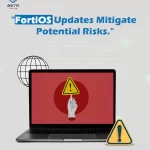Linux, the free, open-source operating system, has always been hailed for its robust security. However, a recently Malicious backdoor spotted in Linux, XZ Utils, has led to a surge in cybersecurity concerns. The backdoor, identified as liblzma and designated as CVE-2024-3094, was found in the beta releases of major Linux distributions. This article aims to shed light on the details of the XZ vulnerability, its potential impact, and the necessary steps for mitigation.

Malicious backdoor spotted in Linux
A highly potent backdoor, given a CVSS rating of 10, was discovered in the beta versions of significant Linux distributions. On Friday, Red Hat advised users to immediately cease using any Fedora Rawhide instances for both work and personal purposes due to the malicious nature of the code.
The specific code vulnerability, known as CVE-2024-3094, has been assigned. The malicious access point was inserted into the original tarballs, or compressed files, of XZ Utils, a popular data compression software used in various Linux distributions, with the release of version 5.6.0.
Developer Andres Freund discovered the backdoor before it was included in any major Linux distributions for production. However, it did make its way into a few beta releases, including Fedora 40, Fedora Rawhide, Debian testing, unstable, and experimental distributions, as well as a version of Arch Linux.
The popular choice for hackers, Kali Linux, was also discovered, but its exposure was limited to only three days.
According to a statement from the Kali Linux team, the presence of a backdoor could potentially lead to unauthorized access to the entire system via sshd authentication, posing a significant threat to the Linux ecosystem.
If you have recently updated your Kali Linux between March 26 and March 29, it is crucial to promptly install the newest update that is currently accessible.
There is no impact on RHEL, Ubuntu, Amazon Linux, and other similar operating systems. Earlier this week, an individual under the guise of a developer attempted to persuade Ubuntu to include the code into their widely used enterprise distribution, falsely alleging that it resolved a known issue.
According to the security expert known as The Grugq, their plan, if executed, would result in the ability to access every Fedora, Debian, and Ubuntu system on the internet. They also suggest that if this plan was not carried out by a state actor, it should be. On Friday, there was a sudden rush among users and distribution maintainers to revert recent updates, after it was revealed that the xz-utils data compression package from versions 5.6.0 to 5.6.1 had been compromised.
According to the US’s CISA, it is advised that developers and users should revert to a secure version of XZ Utils, such as XZ Utils 5.4.6 Stable, to avoid any potential risks from the reported supply chain compromise affecting the data compression library CVE-2024-3094. Additionally, they should thoroughly investigate for any suspicious activity and promptly report any positive findings to CISA.
JiaT75, a developer for XZ Utils with a long history of contributions to the project, was responsible for the harmful alterations. Dan Goodin of Ars Technica expressed concerns about the advanced nature of the changes and advised caution when using previous versions of xz.
According to Red Hat’s statement, a team discovered malicious code in the original tarballs of xz starting from version 5.6.0. The liblzma build process uses a disguised test file found in the source code to extract a prebuilt object file, and then uses this file to make changes to specific functions within the liblzma code. As a result, the modified liblzma library can potentially intercept and alter data interactions for any software that is linked to it.
The Future of Linux Security
In the wake of the XZ vulnerability, there is a pressing need to reassess and fortify the security measures in place in the Linux ecosystem after Malicious backdoor spotted in Linux. The open-source community is called upon to enhance their code review practices and to invest in more sophisticated tools and technologies to detect and prevent such backdoors in the future.
Conclusion
The discovery of the backdoor, liblzma, in XZ Utils has sent ripples across the Linux community. It underscores the need for robust security measures and a collective effort to safeguard the integrity of open-source code. While the prompt response from the Linux community helped mitigate the immediate threat, the event serves as a stark reminder of the continuous and evolving nature of cybersecurity threats.
The XZ vulnerability is a wake-up call for the open-source community. It underlines the importance of vigilance, thorough code review, and robust security measures in maintaining the integrity of the Linux ecosystem. As we move forward, it is crucial to learn from these incidents and constantly strive to enhance the security of open-source systems. After all, security is not a one-time event but a continuous process of learning, adapting, and improving.
Meta Techa services
In the realm of cybersecurity, Meta Techs stands out as a top provider in Dubai, offering a comprehensive suite of services designed to protect businesses from the ever-evolving threats in the digital world. Their offerings encompass a wide range of solutions tailored to meet the unique security needs of their clients. Here’s a closer look at the services provided by Meta Techs:
- Vulnerability Assessment and Penetration Testing (VAPT): Meta Techs employs cutting-edge tools and methodologies to identify vulnerabilities in systems and networks. This proactive approach ensures that potential security breaches are identified and mitigated before they can be exploited.
- Cybersecurity Risk Management: Understanding that risk management is pivotal to maintaining a secure operational environment, Meta Techs offers services that help businesses identify, assess, and prioritize cybersecurity risks. Implementing robust strategies for risk mitigation, they ensure that their clients can operate with confidence in their digital security posture.
- Data Protection and Privacy: In an age where data breaches can severely damage reputations and bottom lines, Meta Techs provides solutions for encrypting sensitive data, managing access controls, and ensuring compliance with global data protection regulations. Their expertise in data privacy laws aids businesses in navigating the complexities of regulatory compliance, safeguarding both customer and corporate data.







